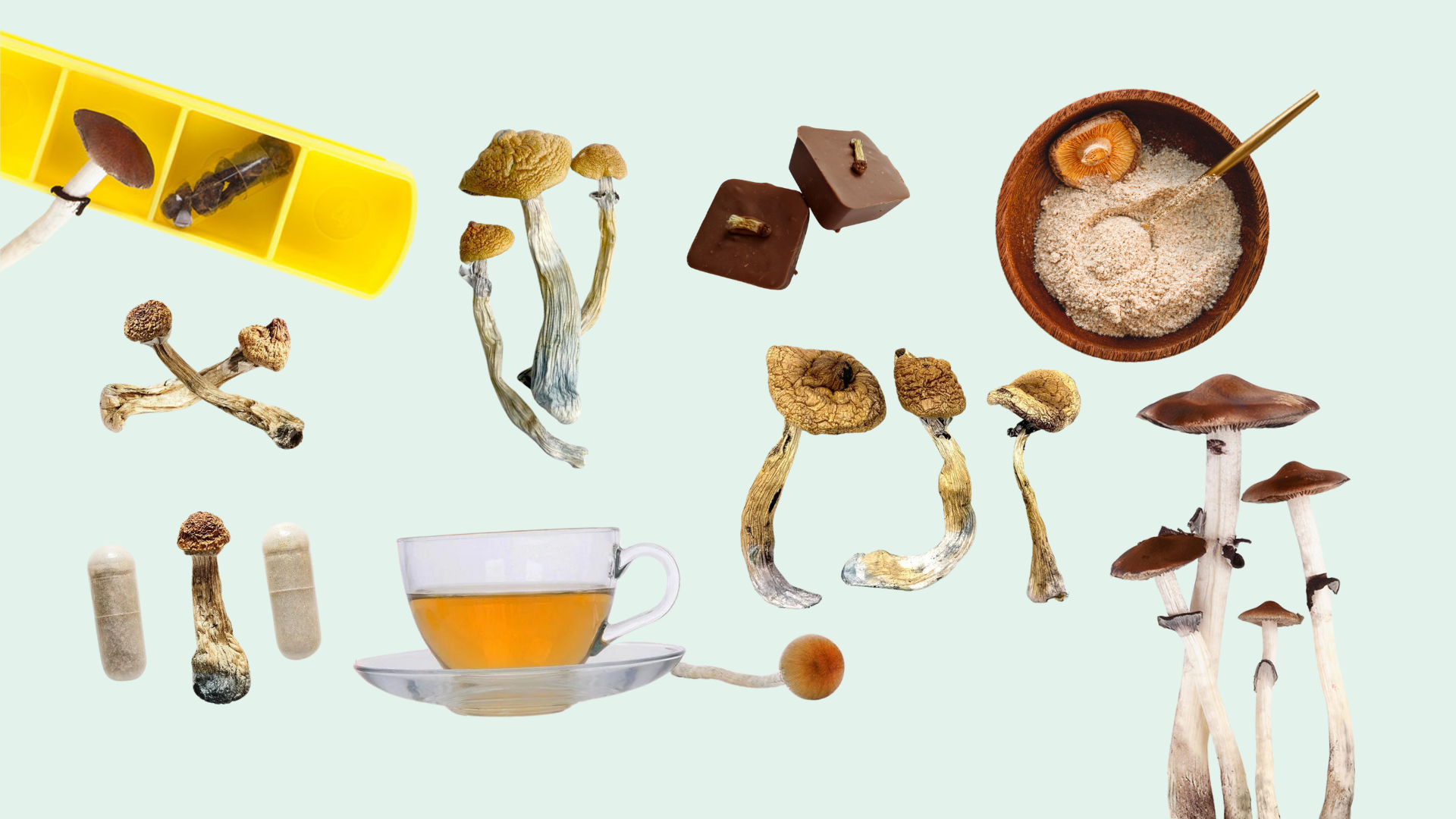What Is Psilocybin?
Psilocybin is a naturally occurring psychoactive compound found in various species of mushrooms, often referred to as “magic mushrooms” or “shrooms.” When consumed, psilocybin induces a profound alteration of perception, thought, and mood, producing hallucinations, synesthesia (the blending of senses), and a heightened sense of well-being or spirituality. These effects can be both exhilarating and overwhelming, leading some users to seek out the experience repeatedly.
Historically, psilocybin mushrooms have been used in traditional cultural and religious ceremonies, where their psychoactive properties were revered for their ability to induce transcendent experiences and connect individuals with the divine. In modern times, addiction and mental health specialists are beginning to see the potential of microdosing psilocybin as a treatment for depression and addiction. However, research is still being conducted, and this type of therapy should only be performed under the care of a physician.
In recent years, the recreational use of psilocybin has become more widespread, particularly among younger populations, leading to a growing need for effective treatment options for those struggling with psilocybin addiction.
What Are the Side Effects of Psilocybin?
While psilocybin is often perceived as a “natural” and relatively safe substance, its use can still carry significant risks and potential side effects. The psychological effects of psilocybin can be highly unpredictable, such as
- Euphoria
- Enlightening experiences
- Intense anxiety
- Paranoia
- Psychosis
- Visual and auditory hallucinations
- Synesthesia (e.g., you can “hear” color)
- Distorted sense of time and space.
On the physical side, psilocybin can cause a range of unpleasant symptoms, including
- Numbness
- Increased heart rate and blood pressure
- Dry mouth
- Nausea
- Vomiting
- Muscle weakness
In some cases, individuals may also experience “flashbacks” or persistent perceptual disturbances long after the initial effects have worn off, a condition known as “hallucinogen persisting perception disorder,” or HPPD.
The risks associated with psilocybin use are not limited to the immediate effects; the substance can also impair judgment and coordination, increasing the likelihood of accidents and injuries, including car crashes and assaults. Additionally, the legal status of psilocybin mushrooms varies widely, with possession, sale, and use being illegal in most countries, including most U.S. states, carrying the potential for severe legal consequences.
What Is Psilocybin Addiction?
While the addictive potential of psilocybin is often debated, it is crucial to recognize that psychological dependence can still develop, leading to problematic patterns of use and negative consequences in an individual’s personal and professional life. The diagnostic criteria for a “hallucinogen use disorder,” which includes psilocybin addiction, involve compulsive use despite adverse physical and psychological effects, an inability to quit or cut down on use, and a significant amount of time spent obtaining, using, and recovering from the drug.
It is crucial to address the issue of psilocybin addiction through a comprehensive approach that combines education, prevention efforts, and access to effective treatment options. It’s wise to know the risks and consequences of psilocybin use by providing individuals with the resources and support they need to overcome their addiction.
What Is Comprehensive Psilocybin Addiction Treatment?
Treating psilocybin addiction requires a multifaceted approach that addresses the unique needs and challenges of each individual. Some general methods are listed below.
Counseling and Therapy
Individual counseling and group therapy can be instrumental in helping individuals with psilocybin addiction understand the root causes of their substance use and develop effective coping strategies. Cognitive behavioral therapy (CBT), in particular, is an effective intervention, as it helps individuals identify and modify the negative thought patterns and behaviors that contribute to their drug use.
Support Groups
Joining a support group, such as Narcotics Anonymous (NA), can provide a sense of community, accountability, and shared experiences that can be invaluable in the recovery process.
Medical Detoxification
In some cases, individuals may require medical detoxification to manage the withdrawal symptoms associated with psilocybin use safely. While psilocybin withdrawal is less common than with other substances, it can still occur, and supervised medical detox can help to ensure a smooth and successful recovery.
Inpatient or Outpatient Rehabilitation
Depending on the severity of the addiction and the individual’s specific needs, treatment may involve either inpatient or outpatient rehabilitation programs. Inpatient programs provide a structured and secure environment for individuals to focus solely on their recovery, while outpatient programs allow for more flexibility and the ability to continue with daily responsibilities.
Dual Diagnosis Care
It is not uncommon for individuals struggling with psilocybin addiction to also have co-occurring mental health disorders, such as depression, anxiety, or bipolar disorder. In these cases, a dual diagnosis approach that addresses both the addiction and the underlying mental health condition is crucial for achieving long-term success.
Navigating the Road to Recovery
Overcoming psilocybin addiction can be a challenging and complex journey, but with the proper support and resources, recovery is possible. By seeking out a comprehensive treatment program that addresses the unique needs of the individual, those struggling with psilocybin addiction can take the first steps towards a healthier, more fulfilling life.
It is important to remember that addiction is a chronic, relapsing condition and that the road to recovery is often not a straight line. Setbacks and challenges may arise, but with the right coping strategies, a robust support system, and a commitment to the recovery process, individuals can overcome these obstacles and achieve long-term sobriety.

